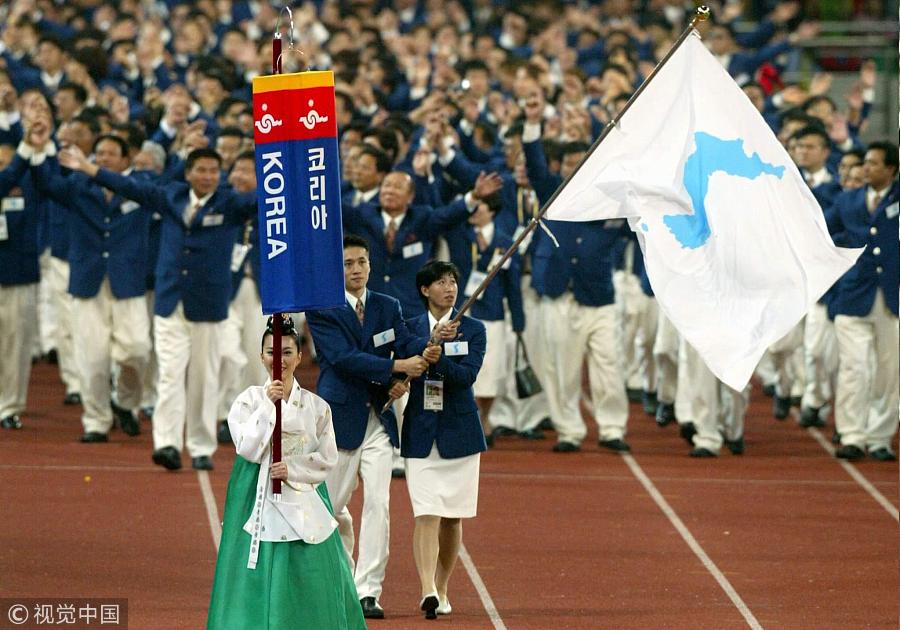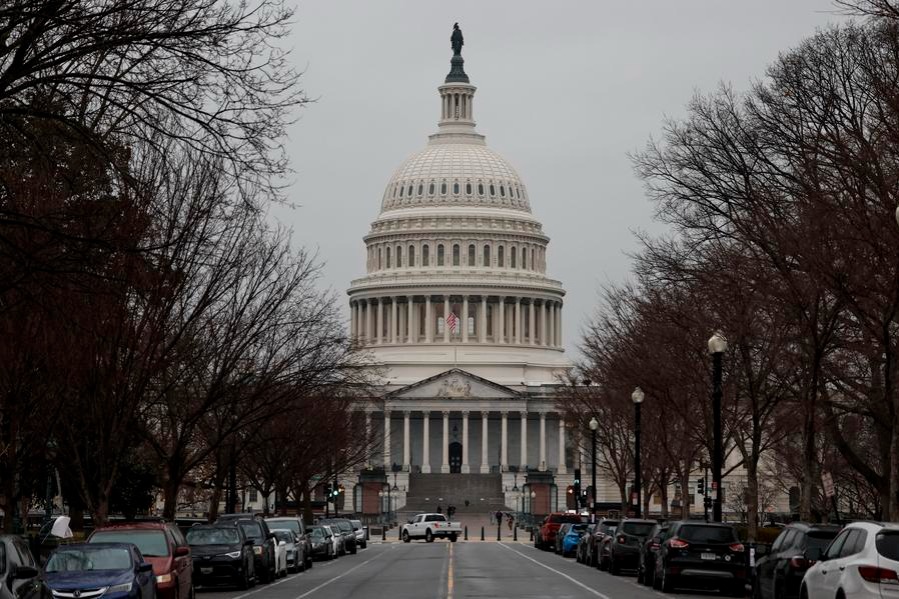US should hail peninsula peace process


The United States and its allies in the Korean War (1950-53) should appreciate the improvement in the Korean Peninsula situation, instead of making efforts to change the trend from peace to conflict.
By responding positively to the Republic of Korea's offer to restore the cross-border hotline and agreeing to send a delegation to the inter-Korean talks at the border village of Panmunjom on Jan 9, the Democratic People's Republic of Korea has raised hopes of restoring peace on the peninsula.
The DPRK has also agreed to send a large delegation and a "cheering squad" to the Winter Olympic Games at Pyeongchang in the ROK in February. In fact, the DPRK delegation will be larger than the ROK's expectation. This should remind the world of the Opening Ceremony of the 2000 Olympic Games in Sydney where the athletes of the two countries marched into the stadium under the banner of "Korean Peninsula".
As the first step toward improving Pyongyang-Seoul relations, the DPRK's participation in the Winter Olympics is a breakthrough move. Of course, the ROK deserves equal credit for its efforts to ease the tensions on the Korean Peninsula, and for its eagerness to facilitate the reunion of the families divided by the Korean War in later negotiations.
Pyongyang and Seoul might initiate cooperation in agriculture and tourism, as they have achieved good results in those fields. And Pyongyang announced it would build an economic development zone in its largest vegetable supply area, Kangnam, on the very day the United Nations Security Council passed Resolution 2397 imposing new sanctions on the DPRK for conducting frequent nuclear and missile tests.
The DPRK-ROK talks have also raised the possibility of a bilateral summit meeting, as ROK President Moon Jae-in has expressed his willingness to do so, albeit with conditions. Moon said Seoul would not ease the sanctions on Pyongyang and the international community would put more pressure on it if it continued developing nuclear weapons. If Pyongyang continues the nuclear program, it would also find it difficult to get the sanctions eased by just holding talks with Seoul.
However, the United States, the ROK's ally, has not changed its stance on the DPRK. It still requires the DPRK to completely abandon its nuclear program, saying it would not ease the sanctions until Pyongyang met its demands. DPRK leader Kim Jongun claimed in his New Year's speech that "we have achieved the goal of completing our state nuclear force in 2017", which shows it will be difficult for the DPRK to give up the nuclear weapons. Washington said the US-ROK military drills, deferred because of the Pyeongchang Winter Games, will be held after the end of the Games.
As such, the post-Winter Olympics situation remains uncertain, which could limit the effects of the Pyongyang-Seoul talks. It is precisely here that China's "dualsuspension" proposal-Pyongyang stopping its nuclear and missile tests in exchange for the US and the ROK halting their major military drills, which the DPRK sees as provocation-can play a vital role. According to Ian Bremmer, president of Eurasia Group, a US political risks research and consulting firm, the DPRK agreeing to hold talks and the ROK postponing the joint military drills with the US to some extent showed how effective the "dual suspension" proposal could be. And let us not forget, China's support for the UN Security Council sanctions played a key role in prompting Pyongyang to agree to the talks.
Despite the different concerns of different countries over the Korean Peninsula issue, they agree on one thing-the denuclearization of the peninsula. But to achieve that, all parties concerned, including China, Russia and the US, have to work together and make concerted efforts.
The author is an associate researcher at the Northeast Asia Studies Center, Jilin Academy of Social Sciences.

































